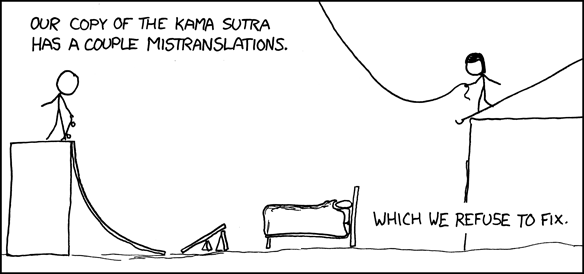Sphinx777
Well-Known Member
The samhitas, the four original vedas, have many concepts in them which contradict each other, but all hindu philosophies teach that the samhitas, at least, are infallible. All hindu scriptures, both sruti (those meant to be divinely inspired) and smriti (those which are 'remembered'), are considered vedas. Those sciptures more recent then the samhitas, espouse even more disparate concepts then the vedas, because they are written from the point of view of differing sects and philosophical schools. I'm not sure whether all of the vedas are beleived to be infallible, or if it is just the samhitas, but if it is all the vedas, then this presents massive problems. The belief that just the samhitas are infallible presents problems too.
Many schools of philosophy are much older then most of the scriptures, or at least originated before most of the scriptures existed, which means that at the time, only the samhitas could have been considered infallible. But does the doctrine of infallibility of the vedas by extension include all scriptures that were later written? which adhere to the views of differing philosophical schools?
I understand that the vedas were revealed by many different rishis which accounts for the disparate concepts, but if that is the case then what is the neccessity of believing every statement in the vedas is infallible? Isn't that just irrational tradition? And if gurus or rishis are enlightened or at least very knowledgeable wouldn't they know better than to say all of the disparate concepts and statements in the vedas are infallible? If the rishis who revealed the vedas were enlightened and all of them saw the truth, and all their revelations are infallible, why do these revelations contradict each other? If the rishis had knowledge and experience of the infinite, and this meant that they could reveal very advanced things which have only been discovered by western science recently, why didn't they have advanced technology and medical knowledge? Why didn't they know all of the things that are now known about the brain, for example?
Furthermore many of the so called sages taught reprehensible things like rape, mysogony, human sacrifice, oppression of the lower castes, inappropriate behavior with animals etc. In the puranas, the sages don't exactly act like enlightened people. That's not the biggest problem of hindu mythology, considering how ridiculous, inane and irrational it all is. I'm sorry, but its true. And these myths were supposedly revealed by enlightened sages. Even the most staunch non-dualists are steeped in the myths and legends of the puranas. Just how does that make sense? It's just the contradictory and irrational nature of hinduism. Sadhus who are supposed to believe in the uncomprehendable, attributeless supreme reality which is the nature of shiva which we and everything are all a part of, and in the oneness of everything, also believe in the stories of shiva killing the other deities he is supposed to be one with, having wives and children, etc.
Could a Hindu comment on this?

Last edited:
Upvote
0

